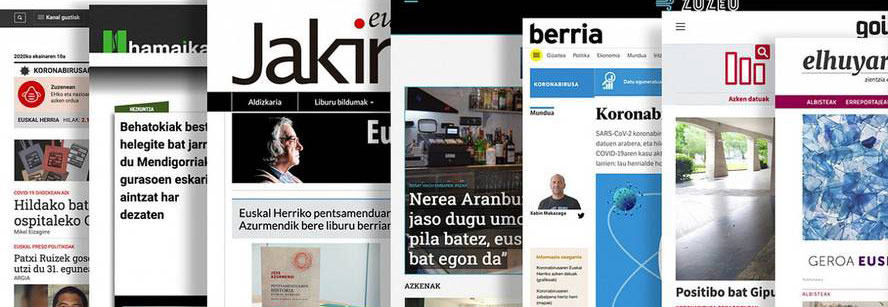Racism has not destroyed them
Louisa
Yiusfi
Txalaparta, 2023
-------------------------------------------------
In 2022, Louisa Yousfi published Rester barbare, and Itziar Diez de Ultzurrun and Txalaparta published it in Basque in 2023, following the words of Ainhoa Nadia Douhaibi. He had not insisted so much on a book for a long time.
Recently Ibai Atutxa told us about the process of barbarization of the Basques, but now there is a race, the author tells us about “the invention of the Mairu-Muslim”.
It is curious how close the French Republic of the South of the Basque Country is. I would say that here, in general, we know very little about reality, and in this book some of the barbarians in the area are made known. In particular, this work can help decolonize the racist imaginary of non-white people built by civilized people. According to the author: “As archivists and writers, all the efforts of our activity will be directed towards clearing the stigma that has spoiled our people, to imagine our people beyond stereotype.”
Yousfi will talk to us about the risks of integration (“uprooted universality”) and will call for resistance to the beginning. Next, he will analyze the representations of the Western worldview tickles and the monsters of the Empire, and explain what it is like not to be white in the suburbs of Paris, mainly with the voice and acting of two rap groups. Finally, Pagadi will be interested in the participation of women in the program and Douhaibi, in the current session, will address this case.
Perhaps the reader will remember the Palestinian genocide. Above all by reading the following: “Today the invention of the Mairu-Muslim object is the main engine of a permanent war and imperial underdevelopment in territories where energy resources are prosperous and our lives are nourished by technological advances and abusive consumption.”
In addition to the complicity of the defeated, we Basques must work the whiteness (to the extent that we are oppressed and privileged) and this book can help us to pave the way: for this we must continue to maintain the temptation to make parallels of complicity – only – and to read the words of this book from our position of power. Uncomfortable, conscious and reflexive.
Over the past few weeks I have had these two books in my hands: The space of reflection in Basque (Euskaltzaindia, 2024) and Mariano Ferrer, reflexive journalism. Journalism and commitment (Erein, 2023) . I have read that 42.2% of Basques see ETB1 and 20.6% read the Basque... [+]
The Council of Euskalgintza is warning of the linguistic emergency we have been experiencing in recent weeks. Several years have passed since the beginning of describing the situation of the process of revitalization of the Basque country at the crossing, at the roundabout, at... [+]

















